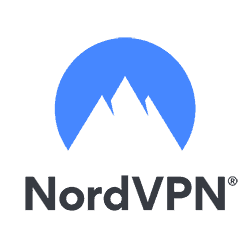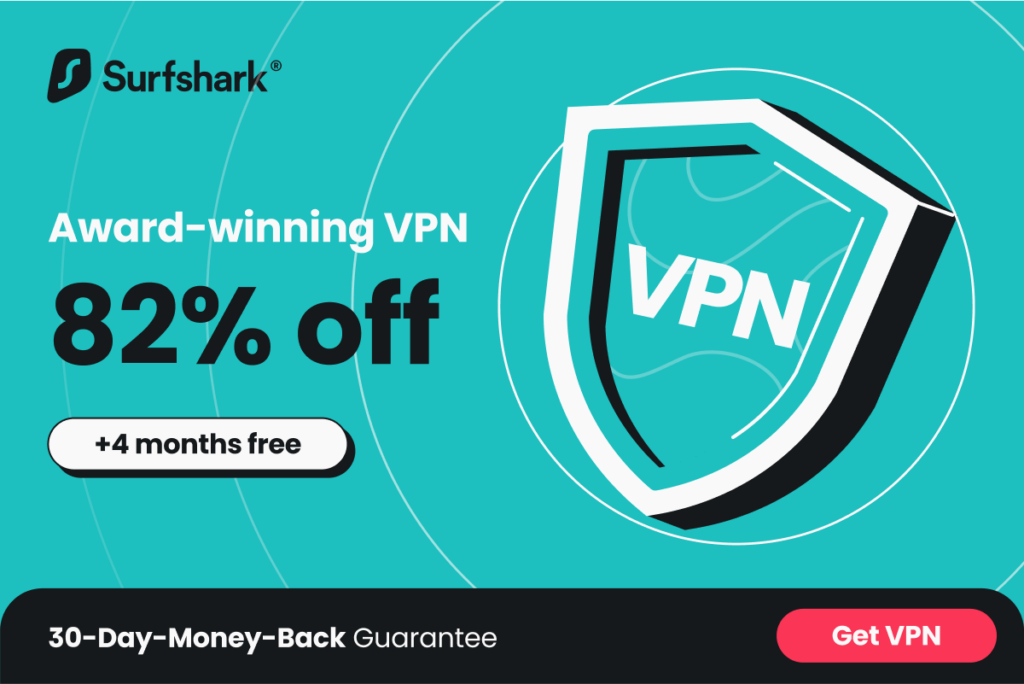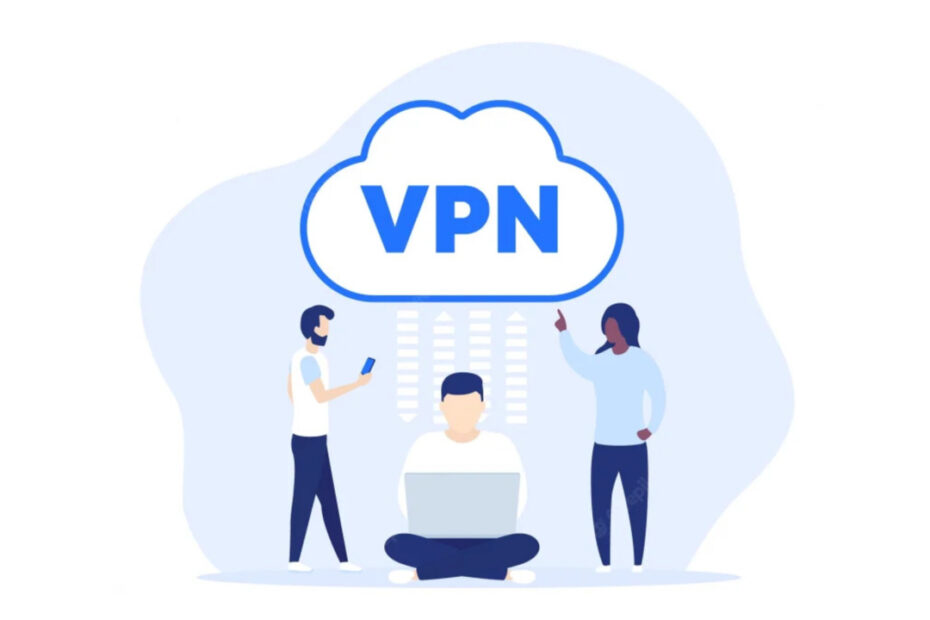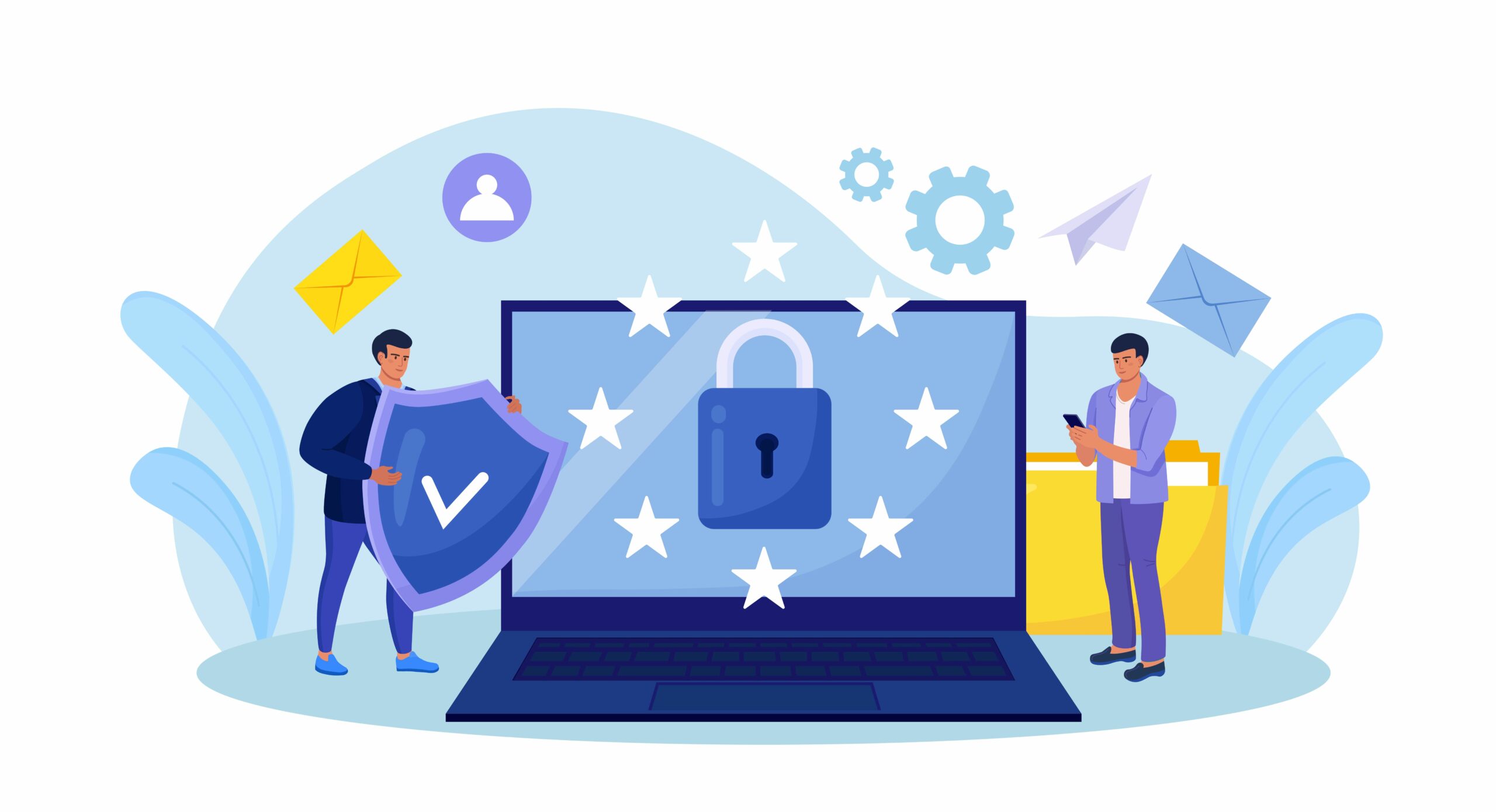Do you want to save money and share the cost of a VPN subscription? It’s a great idea, but there are some risks to consider. In this blog post, we’ll discuss whether or not it’s possible to share a VPN subscription with friends and family and what safety measures you can take if you decide to do so.
Can you share your VPN subscription?
Yes, you can share a VPN subscription without facing any consequences. VPN service providers encourage you to do this. All VPN companies permit a set number of simultaneous connections, which enables you to use the VPN simultaneously on several devices while connecting to various locations.
Keep in mind that “active” here refers to “connected.” Although almost all VPNs allow you to install their software on an unlimited number of devices, you can only turn them on a limited number of times each day. For instance, NordVPN enables six simultaneous connections, allowing you to use it on three phones and three laptops simultaneously.
What are the advantages of sharing your VPN account?
You might save money if you share a VPN with others. Purchasing a subscription for each family member or group of friends interested in utilizing a VPN can get pricey. Sharing an account may be an effective strategy to save money because most VPN providers allow users to connect with numerous devices.
Sharing your account could be a strategy to keep people secure if your VPN provider doesn’t collect logs and your surfing information. They’ll have access to the same level of privacy and protection if you trust the folks you share.
Risks if you share a VPN account
By using a VPN connection, you take over the IP address of the VPN server and direct all of your Internet traffic through it. Greater security and privacy are advantages of using a stranger’s VPN. The most obvious concern is that someone else’s IP address may be prohibited in your nation. If caught, this could get you into trouble with the law.
You might not as well secure your privacy as you think if the account owner keeps track of your behavior or sells your data.
You can lose access to the internet if the VPN connection is blocked or overloaded. So, while there are certain benefits to using a stranger’s VPN account, consider the drawbacks as well.
Is it safe to use someone else’s VPN account?
Yes, under specific circumstances, if the VPN you use doesn’t access your info and keeps no logs. Even if it wasn’t you, most VPN providers passively monitor part of the traffic and have the power to suspend your account if they find something suspicious.
Pros and Cons of Sharing a VPN Subscription
The Pros and Cons of Sharing a VPN Subscription
VPNs are becoming increasingly popular to protect your online data and maintain your privacy while surfing the web. But can you share your VPN subscription with someone else? Read on to learn the pros and cons of sharing a VPN subscription.
Pros:
- Cost savings: By sharing a subscription, you can save money by splitting costs between two or more people. This is especially useful if everyone in an office needs access to the same VPN service.
- More features: Some VPN providers offer special features such as simultaneous connections for multiple devices, allowing you to use one account on multiple devices simultaneously.
- Accessibility: Sharing a subscription gives multiple people access to content that may have been previously blocked in their region because of geographical restrictions.
Cons:
- Security risks: If you’re not careful, there’s always the risk that your shared account could be used maliciously by someone else. Please ensure everyone using the account understands security best practices and how to protect their data.
- Slower connection speeds: Because multiple users are accessing the same server, it can sometimes lead to slower connection speeds than dedicated accounts or services with fewer users connected.
- Insecure protocols/encryption levels: Some VPN providers offer lower-grade encryption protocols or weaker encryption levels to make their service accessible for shared accounts, so check what security measures they have before signing up.
What Are the Best Options for Sharing a VPN Subscription?
Sharing a VPN subscription is a great way to save money and protect your data. With digital privacy becoming increasingly important, you must find the best option for sharing your VPN subscription with those you trust.
There are many VPN providers out there that offer multiple connections on a single plan. NordVPN, ExpressVPN, and PrivateVPN are all excellent choices for sharing your connection with family, friends, or work colleagues.

NordVPN is the best option for connecting multiple devices at once: up to six simultaneous connections and fast speeds, specialty servers, and 24/7 customer support make it an attractive option. You can also share your 6 device slots with people you trust and let them benefit from your subscription. You can also set up NordVPN on any router so that NordVPN’s encryption protocols will protect all devices connected to that network.

ExpressVPN also offers excellent features such as dedicated router apps to sort devices into groups like “streaming” or “downloading” and connect each group with its protocol settings. However, remember that when sharing the VPN connection, you are only allowed to use that one ‘free slot’ of your subscription plan – so keep this in mind if you’re considering setting up more than one connection across different devices.

SurfShark is another great choice if you’re looking for an affordable option with loads of simultaneous connections: just one subscription allows you to connect seven devices simultaneously without sacrificing speed or performance! Plus, they have strong server protection policies in place, meaning they don’t log user activity or IP addresses – giving everyone who connects extra peace of mind when browsing online securely.
Should You Worry About Data Leaks When Sharing a VPN Account?
When sharing a VPN account, it is important to consider the security of your data. A Virtual Private Network (VPN) is designed to keep your data safe and secure by encrypting it and routing it through an encrypted tunnel. But if you share your VPN account with someone you don’t know or trust, there is always a chance that they may not be as secure with your data as you would like.
The most common way that data gets leaked when using a shared VPN account is through malicious actors. Malicious actors can gain access to the shared account and monitor all activity on the network, including any sensitive information that passes through it. If someone else has unrestricted access to your shared VPN account, they can easily steal any personal information or accounts you have connected to the network.
Fortunately, there are ways to protect yourself from data leaks when sharing a VPN account with someone else. The most important thing is to ensure that whoever has access to your shared VPN account knows how to use it securely. Make sure you have set up strong passwords for each user on the network and only provide access rights for those who need them.
Additionally, look into getting a premium service like NordVPN, which offers an additional layer of protection by not keeping any logs of user activity on its networks – this way, even if malicious actors gain access, they won’t be able to see what was done on the network as all activity will be encrypted and untraceable.
Overall, sharing a VPN can be convenient but also comes with risks; make sure you consider these risks before giving anyone else access to your virtual private network so that you can ensure your data remains secure at all times!
Are There Any Risks Associated With Sharing a Single IP Address Amongst Many Users?
Sharing a single IP address amongst multiple users can lead to several risks. For one, using another person’s IP address may be illegal in some countries. Additionally, sharing an IP address often means sharing the same server – and, therefore, the same IP address – with many other users.
This can make it easier for services like Netflix to detect when someone is using a VPN. Two sign-ins from different geographic locations may be identified as suspicious activity. Furthermore, reusing an existing setup code can also increase the risk of malicious attacks.
To minimize these risks, it is recommended to use a reliable VPN service that supports multiple devices so that you won’t need to share your subscription with anyone else. Additionally, using two-factor authentication and other security measures, such as setting up firewalls or encryption protocols, can help protect your data from malicious attacks.
Will Performance Issues Occur When Many People are Connected at Once Through the Same Service Provider’s Network.?
When many people are connected to the same service provider’s network at once, there is a risk of performance issues. This could be due to an overloaded server or limited bandwidth, resulting in slow processing times and lagging.
It is important to ensure that the service provider has enough resources to handle increased traffic. Otherwise, it can lead to latency issues and sluggish web content delivery. To reduce the chances of performance issues arising when many people are connected through the same service provider’s network, users should connect using a virtual private network (VPN).
VPNs help ensure data security by encrypting all information sent over the internet connection and providing faster speeds since it bypasses any traffic throttling from ISPs. Additionally, a VPN can help prevent identity theft and protect online privacy while browsing the web.
Conclusion
In conclusion, using a VPN can provide many benefits. It allows users to access the internet safely and securely, hiding their data from prying eyes. The encrypted connection prevents ISPs from tracking your online activities and gives users access to geo-restricted content.
Moreover, VPNs are excellent at hiding your browsing activity, providing an extra layer of privacy and security. Therefore, investing in a reliable VPN is worth investing in a reliable VPN if you’re looking for a way to protect your online data and access restricted websites.




